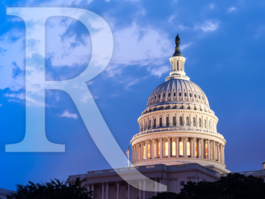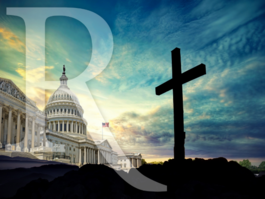Bad Rules
A Commentary By John Stossel
We take free speech for granted in America, unlike elsewhere. The furor over that anti-Muslim video is the latest reminder of that.
But freedom of speech is never safe, even here. Many colleges now impose "civility codes." Civility is nice, but enforcing a "civility rule" against offensive speech would put an end to lots of useful provocative speech. As a University of North Carolina student put it, "A picture of Mitt Romney would offend 70 percent of residence hall students."
Taping my Fox Business Network show at UNC, I also learned that the college, to "protect" women, had dropped the word "freshman." The PC term is now "first year." UNC also decreed that no student may "implicitly" or "explicitly" ask for sex. (Then how do students get it?)
Since sexual activity on campus continues, it's clear that such rules are often ignored. But there is danger in selectively enforced rules. They let authorities punish those with unpopular ideas.
While in North Carolina, we ran across other assaults on freedom of speech. Steve Cooksey started a blog about low-carb nutrition, which included "Dear Abby"-style advice. The state told him that giving such advice without a license is illegal! Cooksey stopped, but enlisted help from the Institute for Justice, the libertarian public-interest law group. Together they sued the state for the free-speech violation. Unfortunately, a federal court dismissed the suit, saying that since the state took no formal action, Cooksey was not harmed. IJ will appeal.
My staff ran his advice by a Harvard nutritionist, who said it was reasonable. But even if it wasn't -- even if it was stupid -- people know that there's plenty of garbage on the Internet.
"Why is it against the law to tell people to avoid grains?" Cooksey asked. "To tell diabetics to reduce carbs to help them normalize their blood sugar? Why is that wrong?" It's "wrong" when politicians are eager to control everything -- even speech about food.
IJ lawyer Paul Sherman said "it would cost Steve thousands of dollars, and take years of his life, to get the dietitian license."
Not only that, it would take 900 hours of apprenticeship even after Cooksey got his degree.
"Anyone who wants to can write a book about nutrition. What the state of North Carolina has said is that you can write a book about nutrition, but if you want to give one-on-one advice to someone, that's categorically forbidden."
Sherman points out that licensing rules keep getting more intrusive: "Fifty years ago, only 5 percent of the American population needed a license from government to work in their chosen occupation. Now that number is 30 percent."
Often licensing is imposed because established businesses want to protect their incomes.
"The story that we see again and again is that the industry itself is the one who's calling for regulation," Sherman said. "It's not that the public is afraid that people like Steve are giving dietary advice. It's dietitians (who) don't want Steve competing with them."
Sherman says North Carolina is about average in terms of unnecessary regulations. It takes $120 in fees and 250 days of classes -- a total of two years -- to be able to cut hair legally. It takes three years to become a landscape contractor. Such rules are a reason unemployment stays high.
And there's no proof that the rules make us safer. "A dozen states don't have any licensure requirements for nutritionists," said Sherman. "Are people in those states more in danger than people in North Carolina?"
I supported occupational licensing when I was a young consumer reporter. But now I've wised up. Now I see that it doesn't protect consumers. Competition and reputation are better protection. When you move to a new community, do you choose new dentists or mechanics by checking their licenses? No. You ask neighbors or colleagues for recommendations, or check Consumer Reports and Angie's List. You check because you know that even with licensing laws, there is quackery.
Licensing creates a false sense of security, raises costs, stifles innovation, takes away consumer choice and interferes with the right to earn a living.
And now I see another reason to object to it. It collides with freedom of speech.
John Stossel is host of "Stossel" on the Fox Business Network. He's the author of "Give Me a Break" and of "Myth, Lies, and Downright Stupidity."
COPYRIGHT 2012 BY JFS PRODUCTIONS, INC.
DISTRIBUTED BY CREATORS.COM
See Other Political Commentary
See Other Commentary by John Stossel
Views expressed in this column are those of the author, not those of Rasmussen Reports. Comments about this content should be directed to the author or syndicate.
Rasmussen Reports is a media company specializing in the collection, publication and distribution of public opinion information.
We conduct public opinion polls on a variety of topics to inform our audience on events in the news and other topics of interest. To ensure editorial control and independence, we pay for the polls ourselves and generate revenue through the sale of subscriptions, sponsorships, and advertising. Nightly polling on politics, business and lifestyle topics provides the content to update the Rasmussen Reports web site many times each day. If it's in the news, it's in our polls. Additionally, the data drives a daily update newsletter and various media outlets across the country.
Some information, including the Rasmussen Reports daily Presidential Tracking Poll and commentaries are available for free to the general public. Subscriptions are available for $4.95 a month or 34.95 a year that provide subscribers with exclusive access to more than 20 stories per week on upcoming elections, consumer confidence, and issues that affect us all. For those who are really into the numbers, Platinum Members can review demographic crosstabs and a full history of our data.
To learn more about our methodology, click here.



